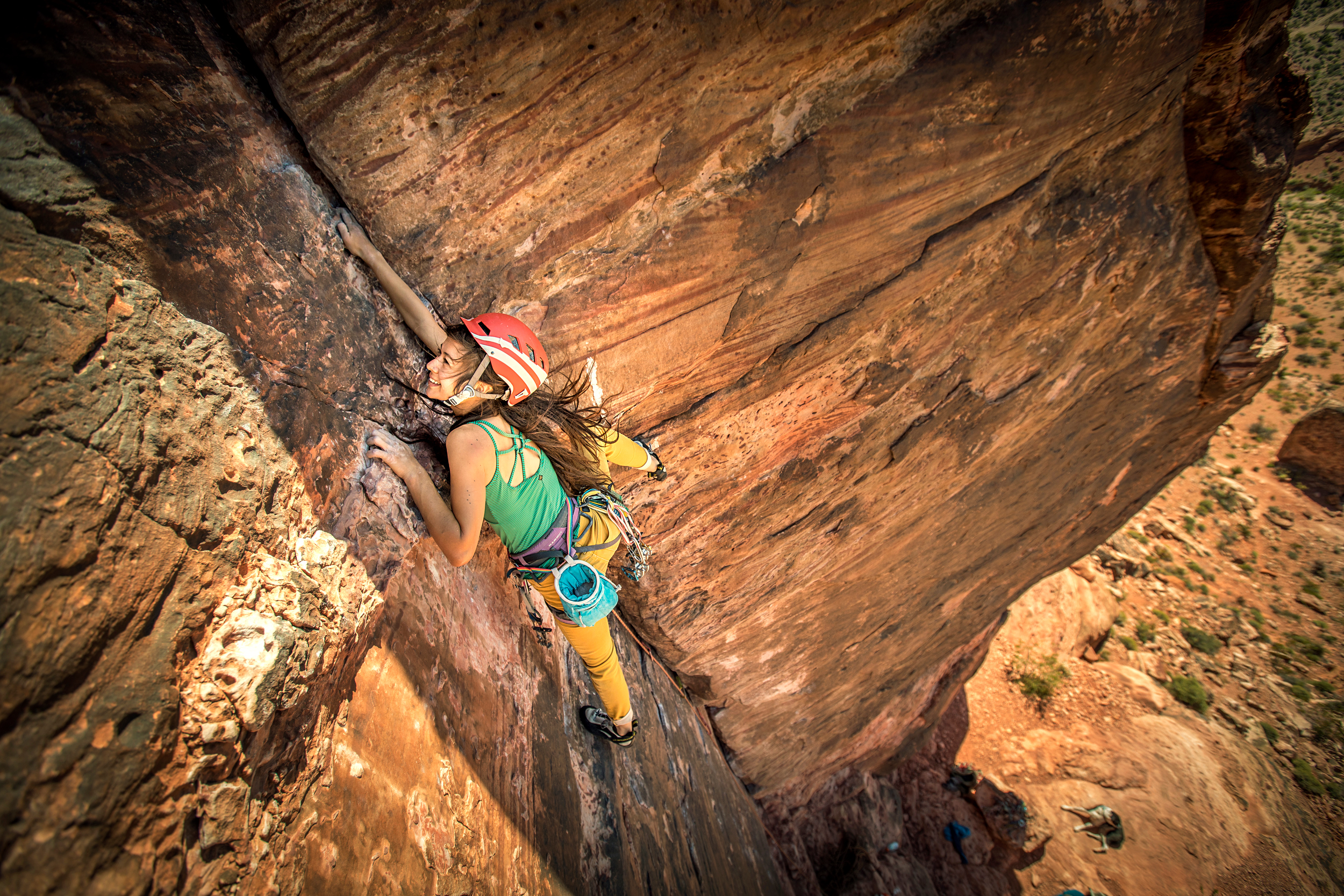For as long climbing has been recognized as a sport, loads of articles about the health benefits have pummeled the internet and print. Though buzzwords like “full-body workout” and “cardio” are totally true, there’s a whole host of underrated health benefits that women who rock climb get every time they send. Here are five benefits you didn’t even know you were getting both on and off the rope.
The Benefits of Fear
Next time you’re on the wall and so scared you’re reconsidering your life choices (that’s right about the time needlepoint starts to look like a viable hobby), just think of the great calorie burn that fear is giving you. The heart-pounding effects from the climb alone don’t just come from the cardio, but the effect is the same; fear burns calories. In addition to the burn, fear also does amazing things for our psyche, too; fear heightens awareness, makes us more resourceful, and then the self-esteem boost that comes from overcoming our fear. While it’s true that too much fear can have unpleasant consequences in our daily lives, a healthy dose of well-calibrated fear can strengthen both our bodies and our minds, one crag at a time.
Lowered Risk of Depression
Nearly everyone will experience depression at some point in life, much to the dismay of well-meaning parents and wholesome childhoods. A new study out of Germany coined the term Bouldering Psychotherapy (BPT) and initial trials look very promising. Of the two randomized study groups, one was treated using conventional therapy alone, and the other received both conventional therapy and BPT. At the end of the eight-week study, patients receiving the BPT had a more significant drop in depression levels when compared to the group that received conventional therapy only. Though the trials of BPT are still very new, scientists believe that the improved cognitive abilities, self-esteem, and social aspect of climbing had a significant impact on the alleviation of depression. Next time you’re feeling down, try going up.
Flexibility For Healing
Flexibility isn’t just for yogis and athletic apparel influencers. Besides the fact that it’s nearly impossible to send a difficult wall without being at least a little bendy, flexibility is a cornerstone for good health across all the boards. Rock climbing women who routinely engage their muscles in feats of flexibility are less likely to injure themselves in other daily activities, but when they do they are even quicker to heal. All that blood flow through limber muscles gets the good stuff where it needs to go faster. Bonus points for the epic posture you’ll have on the days you’re rocking a dress instead of a harness.
Lower Cortisol Levels
The climbing gym is great for training, socializing, and quick runs when the nearest crag is more than an hour’s drive out, but to really cash in on the climb head outside. Studies show that being outside in nature (ironically, as one study points out, even if you don’t like it) lowers cortisol levels. The stress hormone, when heightened over long periods of time, can wreak havoc on our bodies and minds. High cortisol levels cause weight gain, anxiety, low sex drive, irritability, and a whole bunch of other nasty issues that are annoying just to write out. Ultimately, while trying to get your send on outside, you’re also getting your stress off on the inside, and that’s where happy campers come from.
Community
Although solo climbers definitely made the style more mainstream recently (I’m looking at you, Alex), climbing for the most part is an inherently social sport. For those of us who would strongly prefer the safety of a belay, or have a Sunday send group, the social camaraderie fosters an overall sense of well-being. Thanks to the radical reformation of mental health understanding started by the aging hippies in the 80’s, we now know how critical a sense of community is not just for our spirits but for our physical health as well. Having a healthy social life is associated with better immune systems, resistance to depression, and there’s even some evidence that it could help you live longer. Given that the climbing community takes what others may consider life-threatening risks on a regular basis, a bit of socializing for a longer life seems like a fair trade.
Of course, there is a whole swath of great physical health benefits too that are reason enough to rock climb. But, for the female athletes who take to the wall, some of the emotional and mental health benefits can be just as or even more rewarding. Neither the body nor the mind operates entirely independently, and so what’s good for one is almost always good for the other. And for that, we say, “rock on, girl”.


